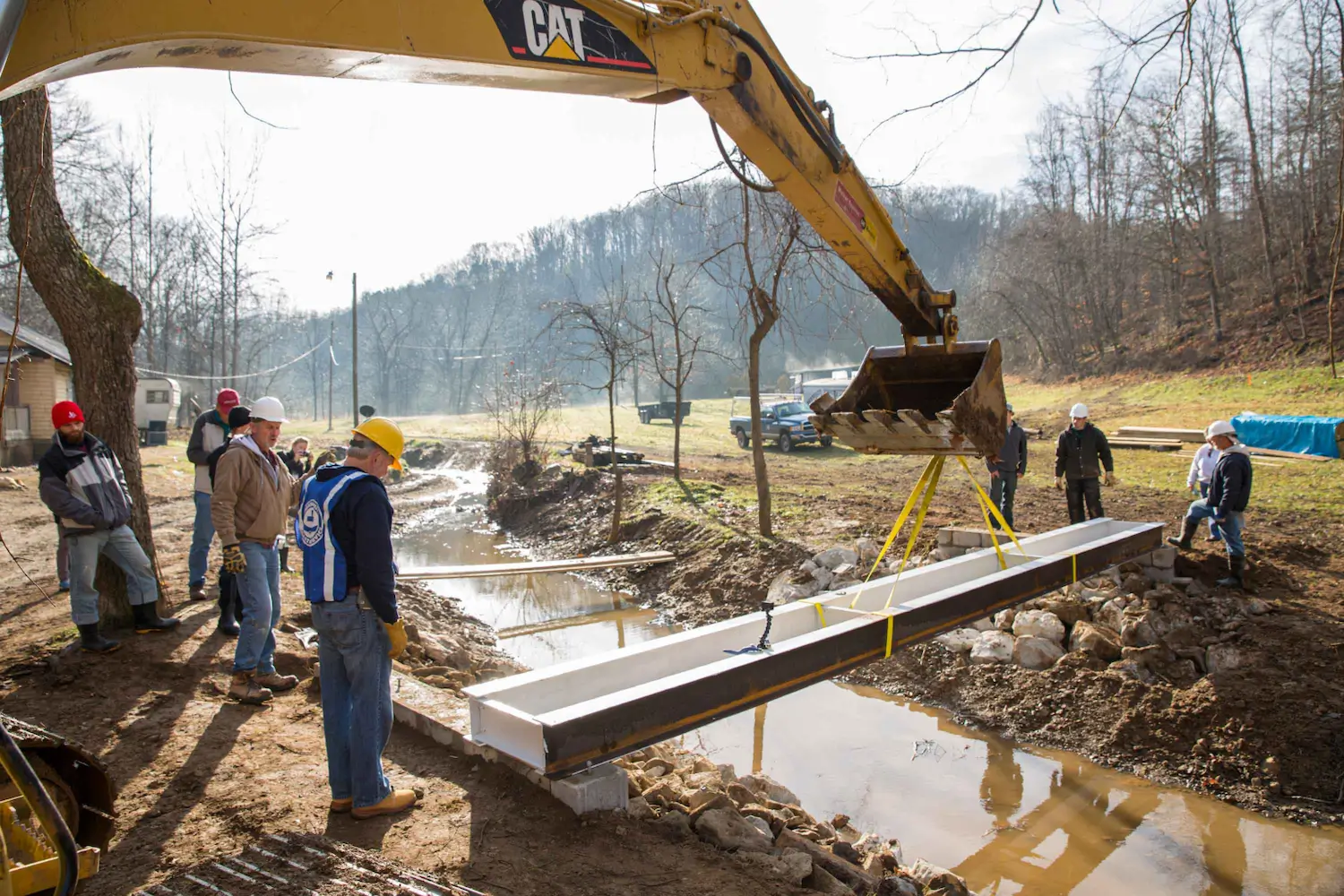ImpactAlpha, Jan. 10 – The Great Deployment is on.
The capital is teed up. The technology is ready. The Inflation Reduction Act and infrastructure bills unleashed hundreds of billions of dollars for U.S. renewable energy projects, water infrastructure upgrades, energy retrofits, electric transportation and other infrastructure for the low-carbon transition.
“Where the world has not caught up is in creating the projects,” Jigar Shah, head of the Energy Department’s Loans Program Office, said on ImpactAlpha’s Agents of Impact podcast last month.
The Community Infrastructure Center, a new portal created by the Milken Institute, is intended to stock the project pipeline by helping communities take advantage of the once-in-a-generation funding opportunities.
Communities, especially rural, Black and Brown and other underserved communities, often lack capital for the upfront feasibility studies, site acquisition costs, architectural and engineering work, and permitting needed before project construction begins.
The Milken Institute’s portal, to debut this week at Milken’s Public Finance Forum in Washington D.C., aims to ensure that good, replicable projects in underserved communities find the resources they need to navigate complex regulations and identify relevant sources of funding. The goal is to build a shovel-ready, investment-ready pipeline of projects that benefit communities.
“The idea is: how do you connect high-demand, highly replicable projects with the experts that can help and capital that can help?” Milken’s Dan Carol told ImpactAlpha.
Carol likens the new portal to “a Match.com” that connects underserved communities that have projects with funding expertise, impact capital, federal dollars, project developers, and even emerging climate tech.
“Our theory of change is to help ‘match’ communities who know what specific projects they want – from green cement pilots to a 20,000 square foot building-micro-grid-housing-jobs incubator – to people that have the skills, capital and tech to help them.”
America’s emerging markets
The Public Finance Forum, in its third year, brings together the world of municipal finance with local project developers, impact investors and others interested in inclusive, green development for underserved areas including rural, urban, and communities of color. Milken calls such communities “emerging market America.”
The development finance metaphor suggests that the blended finance and de-risking models that have been honed overseas can also prove valuable here at home in building climate resilience.
Already, more than two dozen resources have registered on the portal and 16 community projects, including a municipal workforce development program in Colorado, a village relocation project on the Shoalwater Bay Indian Reservation in Washington and a clean coal fertilizer facility in Mingo and McDowell counties in West Virginia.
“We are in the third year of our efforts to build sustainability, equity, and 21st-century innovation into America’s economic development and infrastructure systems,” says Carol, who has led Milken’s effort to build the case for policy support to steer federal investment toward pre-development funding.
The DOE’s Shah, who has $140 billion to deploy as loan guarantees to help commercialize promising climate innovations that are considered too risky by banks and private sector lenders, is featured at this week’s forum. Other speakers include the World Bank’s David Malpass; Dana Bezerra, who left the Heron Foundation recently to lead Greater Share; and John Podesta, in one of his first public appearances in his new role advising president Joe Biden on clean energy innovation and implementation.
Public Finance Initiative’s Lourdes German will present a framework for addressing racial injustices in municipal bond markets (see, “Mispriced risks, investor demand and community power center racial equity in municipal bonds”).
Show me the projects
Republican Sen. Mitch McConnell recently appeared with President Biden in Covington, Ky., to tout a bridge that is funded by last year’s bipartisan infrastructure act. That gives Carol comfort that Republicans won’t slow the rollout of the historic funding programs. Many of the electric vehicle and battery plants and new chip fabs are going up in Republican-led states.
“We think that the deployment of community infrastructure projects to advance local communities – use cases like broadband, more efficient wastewater plants, better more efficient buildings – is a very bipartisan issue,” Carol says. “Delivering catalytic capital, like pre-development capital to advance their projects, is extremely bipartisan.”
“To get this right, we’re going to need $10 trillion by 2050 to have the climate and quality 21st infrastructure we’ll need.”
Increasingly, public and private climate investors are saying, ‘show me the projects.’ Rather than pressing banks and insurance companies for climate pledges, Shah says, climate activists should be pressing mayors and governors and city councils to get local projects ready for financing.
“Say to them, ‘Hey, why is your police car fleet still not electric, when it’s a 2.5 year payback to do that? Why is your school bus fleet still not electric when EPA is providing these grants? Why do you not have solar on all of your flat roofs when it’s a five-year payback?”
Spring Lane Capital teamed with the Milken Institute and other organizations to host a two-day “Developer U” in Boston last month to teach entrepreneurs the fundamentals of project development, including navigating complex regulations, protecting against cost overruns, stakeholder engagement and drafting financeable supply and offtake contracts.
“There is no playbook to help these entrepreneurs scale and attract institutional capital, especially in the energy, food, water, waste and transportation sectors, sectors that require the deployment of physical systems – infrastructure – to create meaningful change,” Spring Lane’s Nate Lowbeer-Lewis wrote in a recent ImpactAlpha guest post. “To move the needle on climate we need a new crop of entrepreneurs who think of themselves first and foremost as project developers.”











